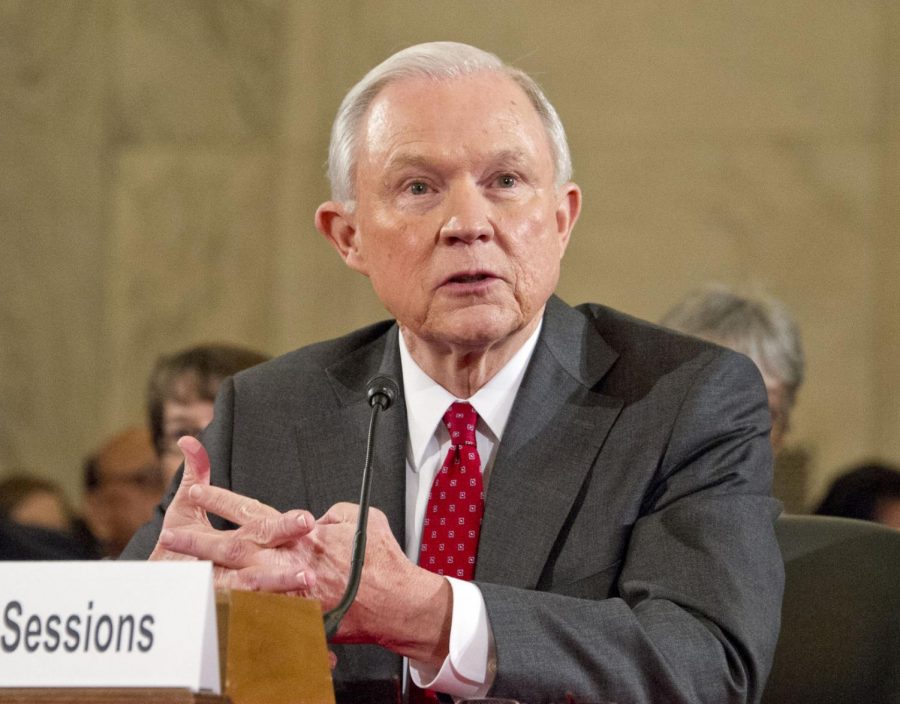Federal government should keep its nose out of marijuana issue
During its infancy, America learned that some issues cannot be left up to the individual states. Among these were the ability to print currency, create an army and resolve interstate disputes.
The federal government is a necessary, overarching institution that allows for the cohesion, prosperity and protection of American society; however, certain things ought to be left up to the individual states so that the laws therein can most accurately represent the will of the people.
One such issue in our time is the legalization of marijuana. Eight states currently regulate recreational marijuana use and production, and 22 others allow for medicinal use of the drug under certain conditions. In the states that have completely legalized marijuana, objective benefits abound: increased tax revenue (to the tune of hundreds of millions of dollars), massive job creation and savings in law enforcement costs, among others.
The time where the federal government needed to intervene on the issue of marijuana is long gone; however, Attorney General Jeff Sessions and Press Secretary Sean Spicer have repeatedly spoken out against it, have spoken ominously about enforcing the federal laws outlawing its cultivation, use and sale in states like Colorado and Alaska, where it has been legal under state law for quite some time.
This would be a grotesque use of the federal government’s power. Putting aside the debate over the nationwide legalization of marijuana for now, this boils down to an issue of states’ rights. The national government has refrained from enforcing the federal law in the states that have legalized recreational marijuana up to this point, and reversing that position would disrupt tens of thousands of jobs and further complicate the criminality of the drug, which ranges from completely legal (over a certain age) in some states to mandatory jail time in others.
The states have the right to determine what is best for their citizens in many cases and this must remain one of those.
The federal government’s right to intervene in these states rests on a fabricated and false notion of what marijuana actually is. Marijuana is, under federal law, a Schedule 1 drug (which means it has a “”high potential for abuse” and has “no currently accepted medical use in treatment in the United States”), alongside heroin, LSD, and ecstasy.
Both of these descriptions are patently false. The misconception that marijuana has no medical use has been rejected by 28 states. According to Business Insider, it is used to treat everything from pain in cancer patients to glaucoma.
There is also no scientific proof that marijuana is addictive, or that it causes long-term negative effects outside of gum problems after many years of use, according to the Washington Post. Essentially, marijuana is better than opioids for pain, and is about as bad for you as failing to floss and brush regularly.
The federal government’s intervention in states that have legalized medicinal and recreational marijuana would be a blatant violation of the deeply held American value of states’ rights.
This especially considering that our current president has stated in the past that the issue should be decided “state-by-state.” It’s a waste of our time, of our money and reflects Session’s attitudes about this and everything else: stuck in the past.








Paula • Jun 15, 2023 at 5:24 pm
I can’t understand the ignorance of so many people. I have smoked on and off for 40+ years for anxiety and ptsd and never became addicted. It’s time for federal government to butt out of our rights where cannabis is concerned.